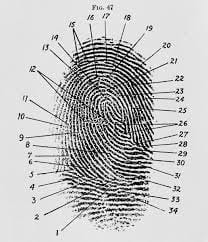Attacking the science and technique involved in a forensics investigation can be complicated. If a forensic technique is new to you, don’t attempt a challenge without the assistance of a qualified expert. They don’t need to be a testifying expert. A consulting expert can be invaluable in helping you understand the science and helping you develop common sense approaches to cross-examining a prosecution witness. So get your own expert on the defense team.
A good expert has the education and experience necessary to help answer the questions you want addressed. A good testifying expert, in addition to having good credentials, must be an effective communicator and be able to withstand vigorous cross-examination. They must express their opinions with confidence and think quickly on their feet. But beware . . . the best forensic experts who testify for the defense have a finite “shelf life.” Do not be surprised how effectively the prosecutor can cross-examine your expert with transcripts from other trials. Every time the expert testifies a transcript is available and prosecutors are very willing to share these transcripts. The more times an expert testifies the easier their weaknesses can be exploited. Beyond this, there are many knowledgable forensic experts who are terrible witnesses. Since maintaining credibility with your jury is paramount you should avoid calling a weak expert witness. You will lose credibility . . . something we fight hard to establish and maintain. Again, you need a witness who can testify with confidence, process information quickly, and communicate effectively to the jury.
must be an effective communicator and be able to withstand vigorous cross-examination. They must express their opinions with confidence and think quickly on their feet. But beware . . . the best forensic experts who testify for the defense have a finite “shelf life.” Do not be surprised how effectively the prosecutor can cross-examine your expert with transcripts from other trials. Every time the expert testifies a transcript is available and prosecutors are very willing to share these transcripts. The more times an expert testifies the easier their weaknesses can be exploited. Beyond this, there are many knowledgable forensic experts who are terrible witnesses. Since maintaining credibility with your jury is paramount you should avoid calling a weak expert witness. You will lose credibility . . . something we fight hard to establish and maintain. Again, you need a witness who can testify with confidence, process information quickly, and communicate effectively to the jury.
An additional problem is not every client can afford to hire a $5,000 witness to assist with a forensic evidence case. When defending court- appointed criminal cases in Bryan-College Station, we typically determine what experts are needed, prepare the necessary ex parte motion for funds, and present the motion to the court for funding. Fortunately, in our jurisdiction the judges are cooperative when it concerns approving money needed for expert witnesses. But even if we don’t get the funds we have created a good record for an appeal. When private funds are limited, learn as much as possible about the science and technique on your own by reading books, conducting research on the Internet, reading professional journals, and talking to other lawyers. You should sometimes consider paying for an expert consultation from company funds, if necessary.
If you cannot afford to hire your own testifying expert . . develop this tried-and- true trial tactic. Turn the prosecutor’s expert into your own. If you are well versed in the science and technique this tactic can be effective. All expert testimony has strengths and weaknesses. Often the hard work is simply finding what you need to exploit. For instance, imagine you are cross-examining the police officer who arrested your client for DWI and who administered the standardized field sobriety tests. Most police officers who administer these tests have been trained and certified using materials published by the National Highway Traffic Safety Administration (NHTSA). Imagine your client performed well on any of the tests . . . now turn the officer into you own expert. Build up the officer’s credibility using his own experience and training. Have the NHTSA materials handy to wield before the jury. Portray the police officer as a knowledgeable and experienced expert in the area of field sobriety testing. Work the officer into a corner and force them to admit your client appeared sober by passing these difficult divided attention tasks.
One more way to use the prosecution expert is to suggest alternative, but credible explanations with respect to their opinion. Imagine in the same DWI trial the prosecutor called a forensic chemist to testify about your client’s blood test results. The chemist found the blood contained an amount of ethyl alcohol in excess of the legal limit. Further, they testified (quite confidently) the gas chromatograph used to test the blood was a reliable method based on reliable scientific theory. However, on cross-examination you successfully demonstrate how improperly preserved human blood can ferment once drawn (called putrefaction). That during the putrefaction process ethyl alcohol is produced as a byproduct and contributed to the amount of alcohol found in the blood. During your closing argument you argue the blood test, although a reliable technique, failed to accurately show how much alcohol was in your client’s blood at the time of driving.
But as always be cautious and be prepared. If you fight a losing battle with the prosecution expert while the jury is watching, you will lose hard-earned credibility. Since our credibility is our most important trial asset, protect it at all costs.


